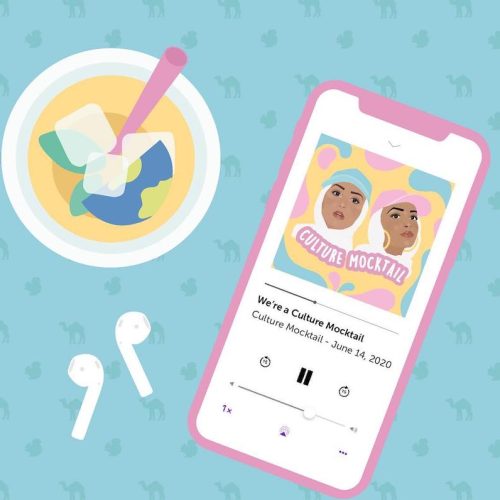As the paper industry faces its challenges and our world becomes increasingly more digitalized, audiobooks have proved to be immune to the vertiginous drop in sales that books, newspapers, and magazines are currently experiencing.
In the United States, communities across the nation were left to deal with a devastating blow following the loss of an average of two newspapers per week between late 2019 and May 2022, leaving 70 million people living in news deserts, or areas at high risk of becoming one. In fact, the situation was already dire prior to this sharp decline, with weekday circulations down by 7% and Sunday circulations plummeting by 4%. According to a sobering study from Northwestern University, if things keep moving in this direction, it’s projected that by 2025, a third of all newspapers will have disappeared.
Coming as somewhat of a savior solution to a whole industry, e-books are providing a fresh new edge to the world of literature. Not only are they more accessible and convenient, but they’re also an eco-friendly and economical option too. In its few years of existence, when compared to physical books of course, text-to-speech service Trinity Audio reported that around 73% of the US population had already fallen for the audiobook craze, with 68% claiming to be weekly readers of that format in 2019.
What’s more, with the rise of streaming services and the decline of traditional instruments of media, audiobooks are helping to reduce waste while diversifying our streams of information and first-hand resources. So basically, whether you’re looking for a way to multitask or simply enjoy a good story in a new way, audiobooks are the way forward, and guess what? our region happens to have jumped onto the bandwagon way before everyone else.
When looking closely at history books, the art of storytelling is far from being a new phenomenon. For those of us who were raised in the Arab World, particularly in the 1980s, it holds a special place in our hearts, notably in Egypt as radio stations would read out entire books, making the experience of listening to stories an integral part of some of our childhoods, wrapped in nostalgia as reminiscent of older times.
In order to celebrate an age-old practice while embracing the new trend that seems to be taking the world by storm, below, we compiled a quick list of audiobook services and platforms to check if you’re looking to read without reading.
Booklava
As the digital landscape continues to evolve, Booklava has emerged as a rising star in the world of Arabic audiobooks. Launched in 2017, the user-friendly mobile app offers a diverse collection of works, both original and translated, that cater to pretty much every audience. From regional authors to international sensations, the service has something to suit everyone’s tastes. With a simple sign-in process using your email, Facebook, or LinkedIn account, you can dive into their collection of Arabic audiobooks narrated by professional voice actors or the author’s themselves.
Reedz
Launched in the Tunisian capital in 2021, Reedz operates on a freemium model, allowing users to access some content for free, while the premium version offers unlimited access to the entire library, including features such as offline usage and a sleep timer. The app has already seen impressive growth, with nearly 100,000 downloads in its first year of launch.
Iqraaly
In 2011, a team of Egyptian engineers— Abdelrahman Wahba, Abdallah Ehab, and Ramy Gamal— joined forces to launch Iqraaly, an app offering Arabic audiobooks, news, and articles. With its subscription plans, users have unlimited access to download and listen to a wealth of Arabic audiobooks offline. Thanks to its innovative approach, the app has become a go-to destination for Arabic audiobook enthusiasts and its previous work in collaboration with the BBC only serves as a testament to its easy user interface and growing popularity.
Kitab Sawti
Kitab Sawti is an Arabic audiobook platform that has been on the rise since its inception in 2016, quickly growing into one of the driving forces of the industry. Founded by a duo of Swedish entrepreneurs, namely Sebastian Bond and Anton Pollak, the hub initially aimed to help Syrian refugees in integrating into Swedish society through literature. However, the founders soon discovered a global demand for Arabic audiobooks and shifted their focus to building a dedicated global portal. With a reported library of over 2,500 titles and over 1 million users by 2020, Kitab Sawti’s success caught the eye of Storytel, the world’s leading audiobook and ebook streaming service company, which went on to acquire the platform in its early stages.
Masmoo3
Considered to be the first-ever Arab-focused audiobook platform, Masmoo3 is a Jordanian start-up that first saw the opportunity to shed light on the region’s literature and written culture by making it accessible on the internet. Founded in 2008 by siblings Ala and Alaa Suleiman, the company boasts a rich digital library available both online and offline, accessible to both web and mobile users. What’s more, Masmoo3 also offers unique one-on-one course aimed at developing skills in areas such as Arabic grammar and voice acting as founders believe “that there are not enough professional voice-overs to cover the whole market. Our course makes it accessible to any person working in media or art to become great voice actors.”









